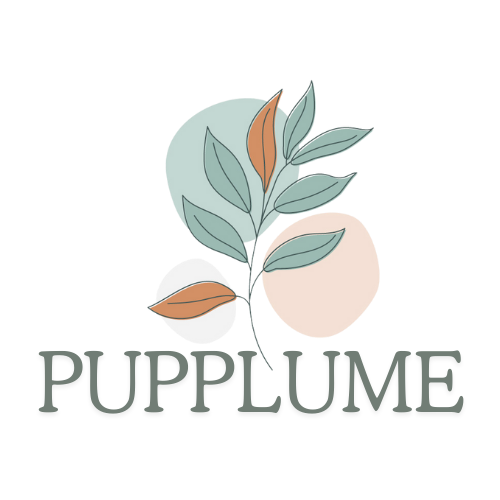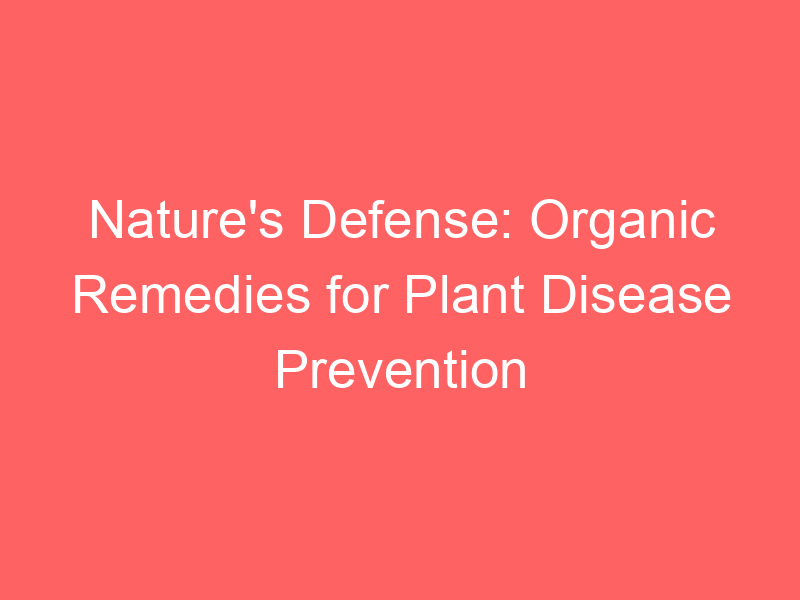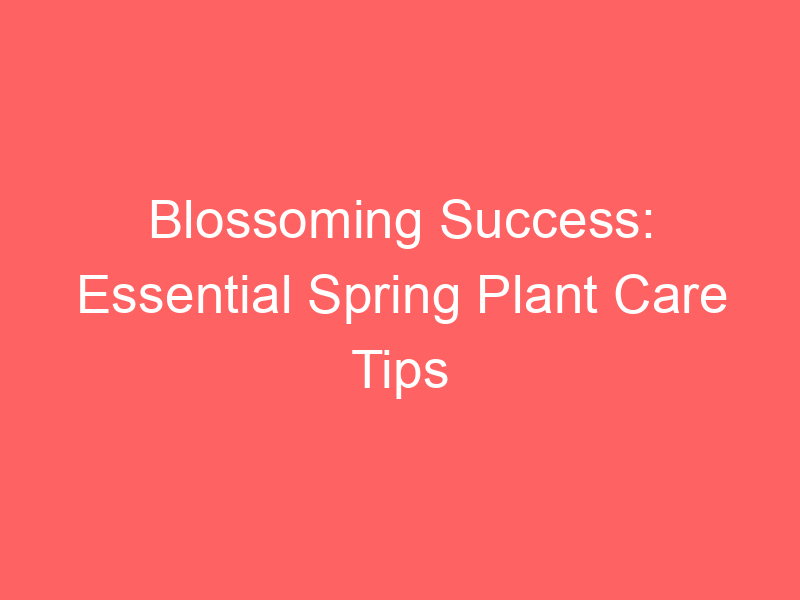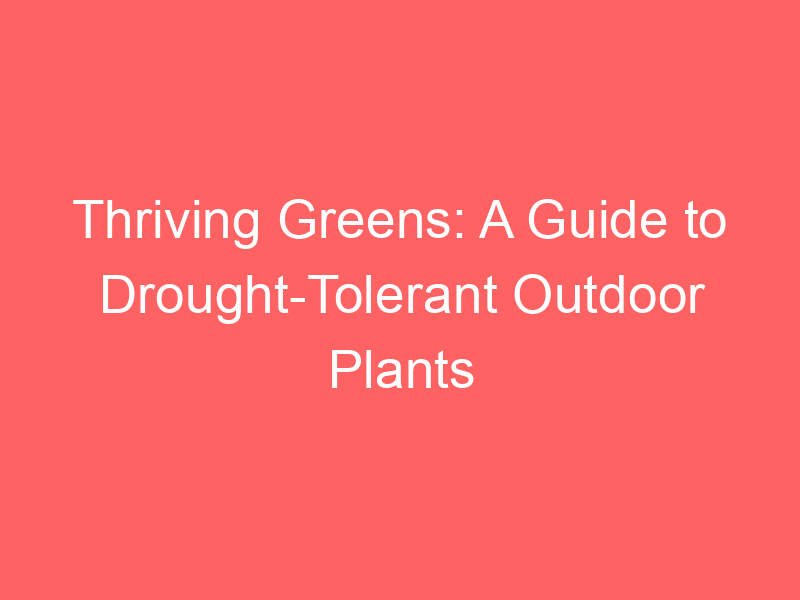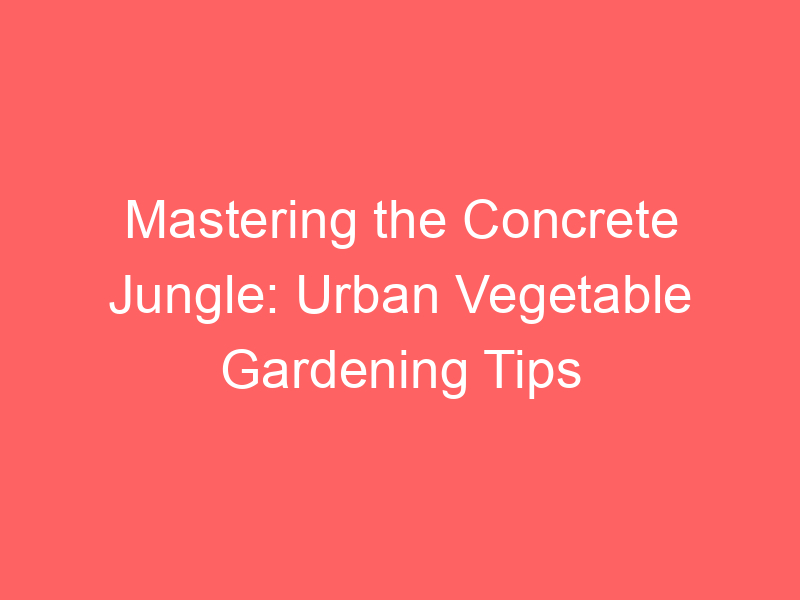Nature’s Defense: Organic Remedies for Plant Disease Prevention
As plant lovers, we all want to keep our outdoor plants healthy and thriving. One of the key aspects to achieving this is understanding plant diseases and how to prevent them using organic remedies. Let’s delve into this topic.
Understanding Plant Diseases
Plant diseases can be a major threat to the health and beauty of your garden. Understanding what they are, their common causes, and their impact can help you take effective measures to prevent them.
- Definition and types of plant diseases: Plant diseases are typically caused by pathogens such as bacteria, viruses, and fungi. They can also be caused by environmental stress factors. There are many types of plant diseases, including blights, rots, wilts, and mildews. Each type affects plants in different ways and requires different treatment methods.
- Common causes of plant diseases: Plant diseases can be caused by a variety of factors. These include poor soil quality, inadequate or excessive watering, incorrect planting techniques, and exposure to pests. Additionally, environmental conditions such as temperature and humidity can also contribute to the development of plant diseases.
- Impact of plant diseases on home gardens: Plant diseases can have a significant impact on home gardens. They can reduce the aesthetic appeal of your garden, decrease the productivity of fruit and vegetable plants, and in severe cases, can lead to the death of the plants. This not only affects the look of your garden, but can also be costly in terms of replacing affected plants.
Now that we have a better understanding of plant diseases, we can explore organic remedies to prevent them. Stay tuned for our next section on natural plant disease remedies.
Natural Plant Disease Remedies
Plant diseases can be a real challenge for any gardener. However, nature provides us with some effective remedies that can help in preventing and treating these diseases. Let’s explore some of these natural remedies.
-
- Using Garlic as a Natural Fungicide
Garlic is not just a flavorful addition to your meals, but it also has potent anti-fungal properties. It can be used as a natural fungicide to protect your plants from fungal diseases. To use garlic as a fungicide, you can make a garlic spray. Simply crush a few cloves of garlic, mix them with water, and spray this mixture on the affected plants. This simple remedy can help control fungal infections and keep your plants healthy.
-
- Chamomile Tea for Damping-Off Disease
Damping-off is a common disease that affects seedlings, causing them to rot at the base and eventually collapse. Chamomile tea is a natural remedy for this disease. The anti-fungal properties of chamomile can help prevent the growth of the fungi responsible for damping-off. To use chamomile tea as a treatment, brew a strong tea, let it cool, and then use it to water your seedlings. This can help protect your young plants from damping-off disease.
-
- Using Milk as a Mildew Treatment
Mildew is a common problem in many gardens, affecting a wide range of plants. However, a simple solution of milk and water can be an effective treatment. The proteins in the milk react with sunlight to create a hostile environment for the mildew. To use milk as a mildew treatment, mix one part milk with nine parts water and spray this mixture on the affected plants. Repeat this process every few days until the mildew is under control.
These natural remedies can be a safe and effective way to protect your plants from diseases. Regularly check your plants for signs of diseases and take action as soon as you notice any problems.
Organic Plant Disease Prevention
Preventing plant diseases organically is not only beneficial for the environment, but it also enhances the overall health and productivity of your plants. Here are some natural methods to prevent plant diseases.
Preventing Plant Diseases Naturally
There are several ways to prevent plant diseases naturally. These methods are not only effective but also environmentally friendly. Let’s explore some of these methods:
- Proper plant spacing for air circulation: Adequate space between plants is crucial for preventing the spread of diseases. It allows for better air circulation, reducing the humidity levels that many diseases thrive in. According to a study, proper plant spacing can reduce the incidence of diseases by up to 50%.
- Regular pruning to prevent fungal diseases: Regular pruning of your plants can help prevent the spread of fungal diseases. By removing dead or diseased branches, you reduce the chances of the disease spreading to healthy parts of the plant. A study found that regular pruning can reduce the incidence of fungal diseases by up to 60%.
- Using compost for healthy soil and plants: Compost is a rich source of nutrients for your plants. It also improves the structure of the soil, making it more resistant to diseases. A study found that using compost can increase the disease resistance of plants by up to 70%.
By implementing these organic disease prevention methods, you can ensure the health and longevity of your plants while also contributing to a healthier environment.
Organic Gardening Tips
Organic gardening is a rewarding hobby that not only brings you closer to nature but also promotes a healthier environment. Here are some tips to help you prevent plant diseases and grow a thriving garden organically:
-
- Choosing disease-resistant plant varieties
One of the best ways to prevent plant diseases is to choose disease-resistant varieties. These plants have been bred to resist certain common diseases, reducing the need for chemical treatments. For example, some tomato varieties are resistant to blight, a common fungal disease. You can often find information about a plant’s disease resistance on its tag or in its description if you’re buying seeds or plants online.
-
- Rotating crops to prevent soil-borne diseases
Rotating your crops each year can help prevent soil-borne diseases. This practice involves changing the location of certain types of plants within your garden each year to disrupt the life cycles of diseases and pests. For example, if you planted tomatoes in one area of your garden this year, plant them in a different area next year. This simple rotation can significantly reduce the chances of your plants getting diseases.
-
- Using organic mulch to suppress weeds and diseases
Mulch is a gardener’s best friend. Not only does it help retain soil moisture and regulate soil temperature, but it also suppresses weeds and prevents diseases. Organic mulches, such as straw, wood chips, or compost, can also improve your soil’s fertility as they decompose. A layer of mulch around your plants can prevent soil-borne diseases from splashing onto your plants when it rains. Keep in mind to replace or replenish your mulch as it decomposes to keep your garden healthy and disease-free.
Home Remedies for Plant Diseases
Every plant lover knows that keeping your plants healthy can sometimes be a challenge. Diseases can attack your plants, causing them to wilt, discolor, or even die. But don’t worry! There are many home remedies that can help you combat these diseases and keep your plants thriving. Let’s explore some of these remedies.
Home Garden Plant Disease Remedies
Here are three simple, yet effective remedies you can use to treat common plant diseases in your home garden:
- Using baking soda for fungal diseases: Baking soda is a powerful fungicide that can help control various fungal diseases. Mix one tablespoon of baking soda with a gallon of water and spray it on the affected plants. This solution creates an unfavorable environment for the fungi, helping to stop their growth and spread.
- Apple cider vinegar for rust control: Rust is a common plant disease that can cause significant damage to your plants. Apple cider vinegar can help control rust by altering the pH level on the plant surface, making it inhospitable for the rust to thrive. Mix two tablespoons of apple cider vinegar with a gallon of water and spray it on the affected areas.
- Using hydrogen peroxide for root rot: Root rot can be a serious problem for plants, but hydrogen peroxide can help. It releases extra oxygen, which helps the roots to breathe and recover. Mix a solution of one part hydrogen peroxide to 32 parts water and apply it to the affected plants.
Remember, prevention is always better than cure. Regularly check your plants for signs of disease and act promptly if you notice anything unusual. With these home remedies, you can keep your plants healthy and vibrant.
Natural Solutions for Plant Health
Keeping your plants healthy doesn’t always require synthetic chemicals. There are natural solutions that can help you maintain the health of your outdoor plants. Let’s explore three effective natural remedies.
-
- Using Neem Oil for Various Plant Diseases
Neem oil is a natural pesticide extracted from the seeds of the Neem tree. It’s effective against a wide range of plant diseases, including powdery mildew, black spot, and rust. Neem oil works by disrupting the life cycle of pests and preventing them from eating and growing. It’s safe for beneficial insects like bees and ladybugs. To use, mix a few drops of neem oil with water and spray it on the affected plants. Repeat this process every week for best results.
-
- Using Epsom Salt for Nutrient Deficiencies
Epsom salt, also known as magnesium sulfate, is a natural mineral that can help plants absorb nutrients better. It’s especially beneficial for plants showing signs of magnesium deficiency, such as yellowing leaves. To use Epsom salt, dissolve a tablespoon in a gallon of water and apply it to your plants once a month. This will help your plants grow stronger and healthier.
-
- Using Worm Castings for Overall Plant Health
Worm castings, or worm poop, is a rich source of nutrients for plants. It improves soil structure, promotes root growth, and increases the plant’s resistance to diseases. To use worm castings, simply mix it into your soil or use it as a top dressing for your plants. Regular use of worm castings can lead to healthier and more productive plants.
Natural solutions like neem oil, Epsom salt, and worm castings can be effective in maintaining the health of your outdoor plants. They are safe, eco-friendly, and easy to use. So, why not give them a try and see the difference they can make in your garden?
Eco-Friendly Plant Disease Prevention
As we strive to create a greener and healthier environment, eco-friendly methods of plant disease prevention have become increasingly important. These methods not only protect our plants but also contribute to the overall health of our ecosystem. Let’s explore some organic methods that can help us keep our plants healthy and disease-free.
Organic Methods for Plant Disease Prevention
Organic methods of plant disease prevention are not only eco-friendly but also effective. They work by enhancing the natural defenses of the plants and the soil they grow in. Here are some of the most effective organic methods:
- Using beneficial insects for pest control: Beneficial insects, like ladybugs and lacewings, can help control pests that cause plant diseases. These insects are natural predators of harmful pests and can keep their population in check. For example, ladybugs are known to eat aphids, a common plant pest. By introducing these beneficial insects into your garden, you can reduce the use of chemical pesticides and promote a healthier ecosystem. You can read more about this method on Wikipedia.
- Using trap crops to protect main crops: Trap crops are plants that are more attractive to pests than the main crops. By planting these around your main crops, you can divert pests away, protecting your main crops from disease. For instance, planting marigolds around your vegetable garden can help keep pests like nematodes and whiteflies away from your vegetables.
- Using cover crops to improve soil health: Cover crops, like clover and rye, are planted to improve soil health. They help prevent soil erosion, improve soil structure, and increase organic matter in the soil. Healthier soil means healthier plants that are more resistant to diseases.
Eco-friendly plant disease prevention methods are not only beneficial for our plants but also for our environment. By adopting these methods, we can contribute to a healthier and greener world.
